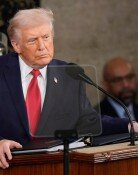Documents Reveal Korea, Japan Cover-Up
Documents Reveal Korea, Japan Cover-Up
Posted February. 06, 2006 03:45,
A fact-finding probe into the kidnapping of Kim Dae-jung in Tokyo on August 8, 1973 failed because of a political compromise between the Korean and Japanese governments, according to diplomatic documents released by the South Korean government yesterday.
The documents reveal then-Prime Minister Kim Jong-pil, who visited Japan on November 2, 1973 to resolve the incident, told then-Japanese Prime Minister Tanaka Kakuei, The Korean president [Park Jung-hee] will make efforts to prevent you from being embarrassed, so I would like you to leave the Kim Dae-jung incident behind you.
In response, Tanaka agreed to end the Japanese investigation and leave the matter to Korean authorities, saying, We will gradually pressure the Japanese investigation team and shut it down.
A partial account of the incident was disclosed in the February 19, 1998 edition of Dong-A Ilbo based on a relevant investigation report from the Agency for National Security Planning (ANSP), but this is the first time that details of the Korea-Japan negotiations in this matter have been sourced from diplomatic documents.
Though it has been more than 30 years since they were drawn up, some diplomatic documents written between 1947 and 1974 have remained classified due to national security and privacy infringement concerns. A total of 191 diplomatic documents (approximately 17,000 pages) were de-classified yesterday. The de-classification was approved at a diplomatic document disclosure deliberation commission meeting last December.
The documents will be available to the public in microfilm form at the Institute of Foreign Affairs and National Security (IFANS) in Seocho-dong, Seocho-gu, Seoul, starting today. Excerpts from major documents of some 7,000 pages will also be available to the public at www.donga.com.
Jong-Koo Yoon jkmas@donga.com






![‘부화방탕 대명사’ 북한 2인자 최룡해의 퇴장 [주성하의 ‘北토크’]](https://dimg.donga.com/c/138/175/90/1/wps/NEWS/IMAGE/2026/02/27/133414028.1.jpg)
